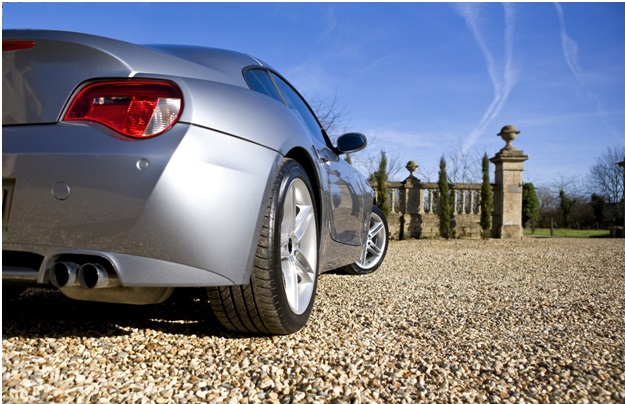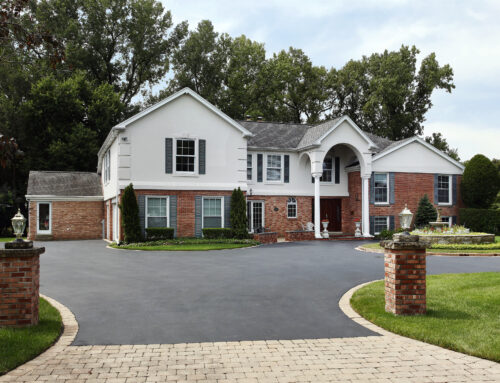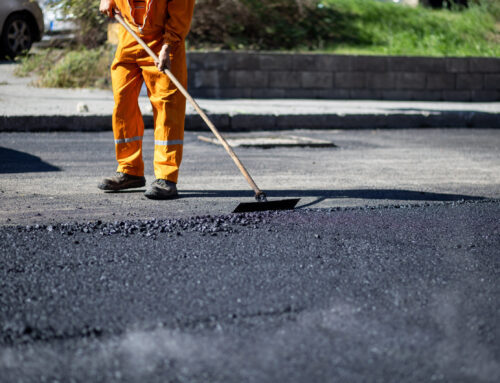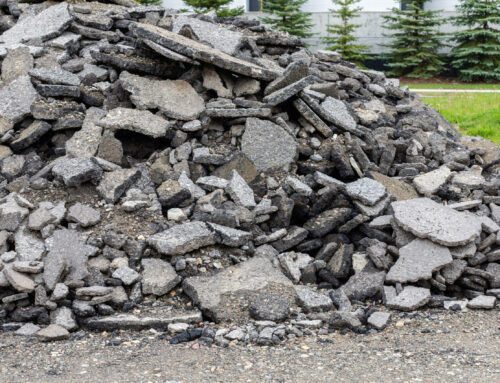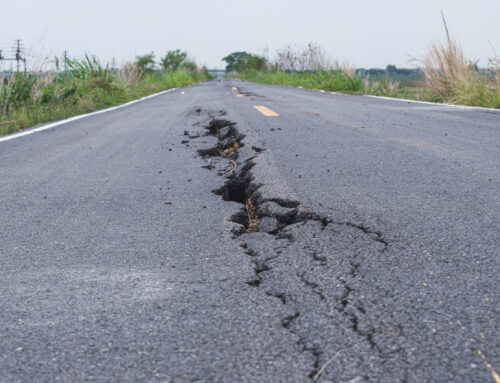The Pros and Cons of Chip and Seal Driveways
This month on Sunrise Asphalt seems to be a driveway heavy one so without further ado we’re going to talk about chip and seal driveways and the pros (and cons!) of going this direction with your space.
What is a Chip and Seal Driveway
Chip and seal driveways look similar to a straight-up asphalt one. You’d be forgiven for thinking they are the same thing! Chip and seal goes by a few other names as well, seal chip, chip seal, tar-and-chip and others. You’ve driven over hundreds of miles of chip and seal asphalt and probably not even realized it! It’s especially popular in rural areas.
Chip and Seal Installation
Paving using chip and seal is relatively straightforward but does require professionals to get it done. First, a base layer of gravel is installed then a layer of hot asphalt is poured onto the gravel. Then a layer of loose stones is rolled into the asphalt to form the surface layer. Chip and seal can be installed over an existing driveway already in place, so long as it’s in good shape.
If you wanted to get crafty, you could even potentially have different stones or colored stones in that top loose stone layer to give your driveway a unique appearance.
Pros of Chip and Seal Driveway
Lower Cost
Let’s compare chip and seal to the other options most like it, gravel and asphalt. While gravel is the cheapest option you’re likely to find, it’s not a particular durable surface. Chip and seal sits there in the middle on a scale between just plain gravel and total asphalt.
Good Traction
Chip and seal driveways have a texture to the surfaces which provides them with better traction when they’re wet or covered in snow. This is a clear benefit over standard concrete or asphalt which are much smoother – if you need that traction! Not everyone does, so, again, consider that.
Easy Maintenance
Not much upkeep is required with tar-and-chip driveways thankfully! Unlike standard asphalt, chip and seal doesn’t need to be sealed, and smaller cracks will heal themselves over time. That said, you can certainly refresh and renew the surface by applying a new layer of hot asphalt and stone but that doesn’t need to be done any more than every decade or so!
Rustic Look
This is a pro if you’re into this sort of thing, but we admit it just as easily could be a con – it’s a matter of personal taste! Chip and seal surfaces have a more rustic look, they’re popular amongst rural roads and locations because of their inexpensive cost, making them ideal for those far off roads. If you want to bring a bit of the rural vibe to your home, a chip and seal driveway ain’t a bad way to start!
There are some cons to a chip and seal driveway of course, they have a lower lifespan than other paving solutions, and they can be more easily damaged by snow plows. If you’re in a region that needs those it’s something to consider!
How Does Chip and Seal Stack Up Against Asphalt
Asphalt is a term that we use quite frequently around here, as you might imagine, and most often it specifically refers to pavement made up of liquid asphalt and aggregate. Chip and seal is different from traditional asphalt in that it is applied in separate layers. Asphalt on the other is mixed together ahead of time and then applied hot while it’s a workable material that is then compacted.
Asphalt has a more uniform look than chip and seal and doesn’t evoke the same ‘rustic’ qualities.
Not sure if chip and seal is right for you? Find out more about chip seal here, and if you’re ready to work with a local expert, call us here at Sunrise Asphalt today – we’ll give you a free estimate and help you understand just what your asphalt solution should be!

